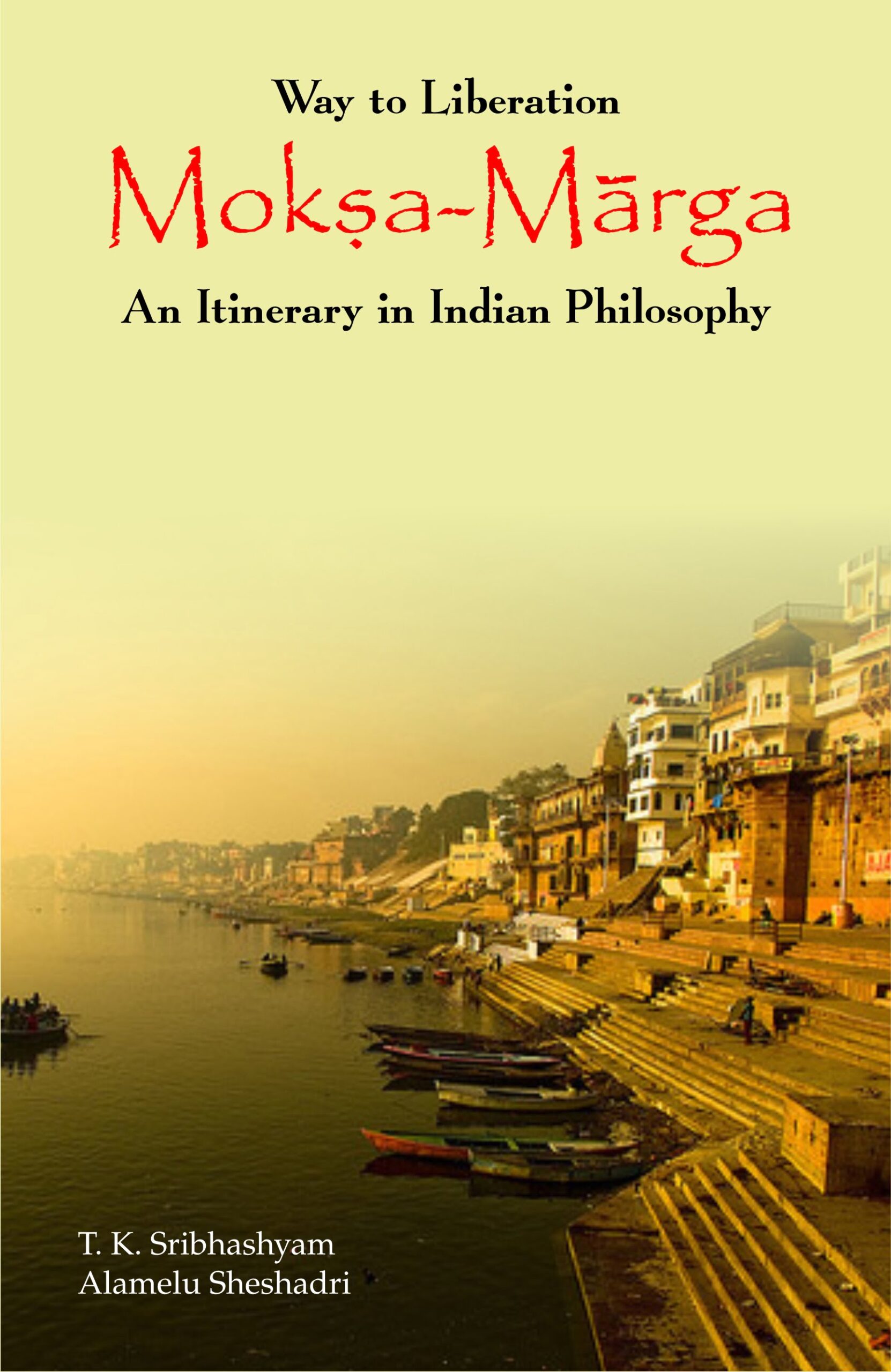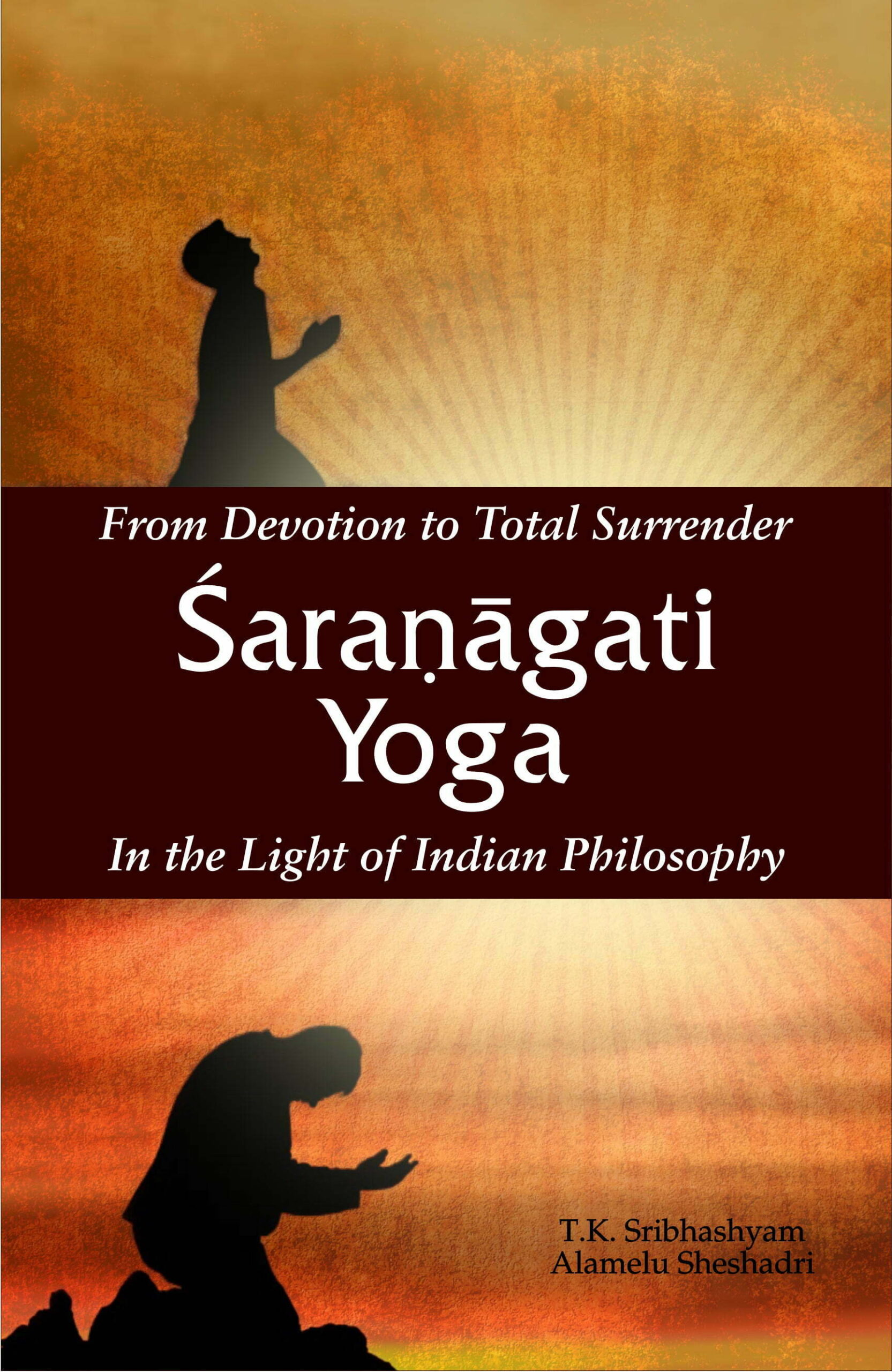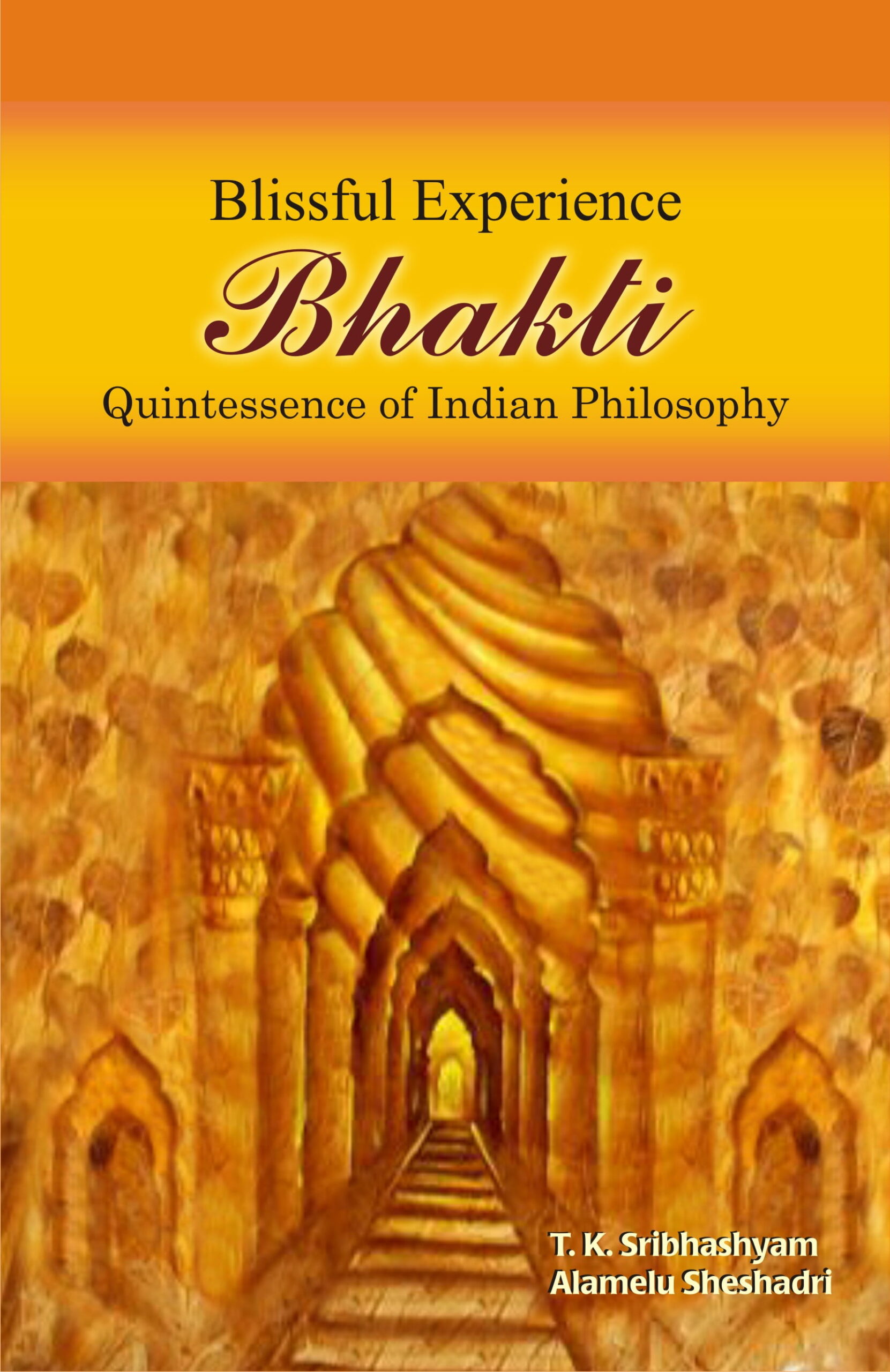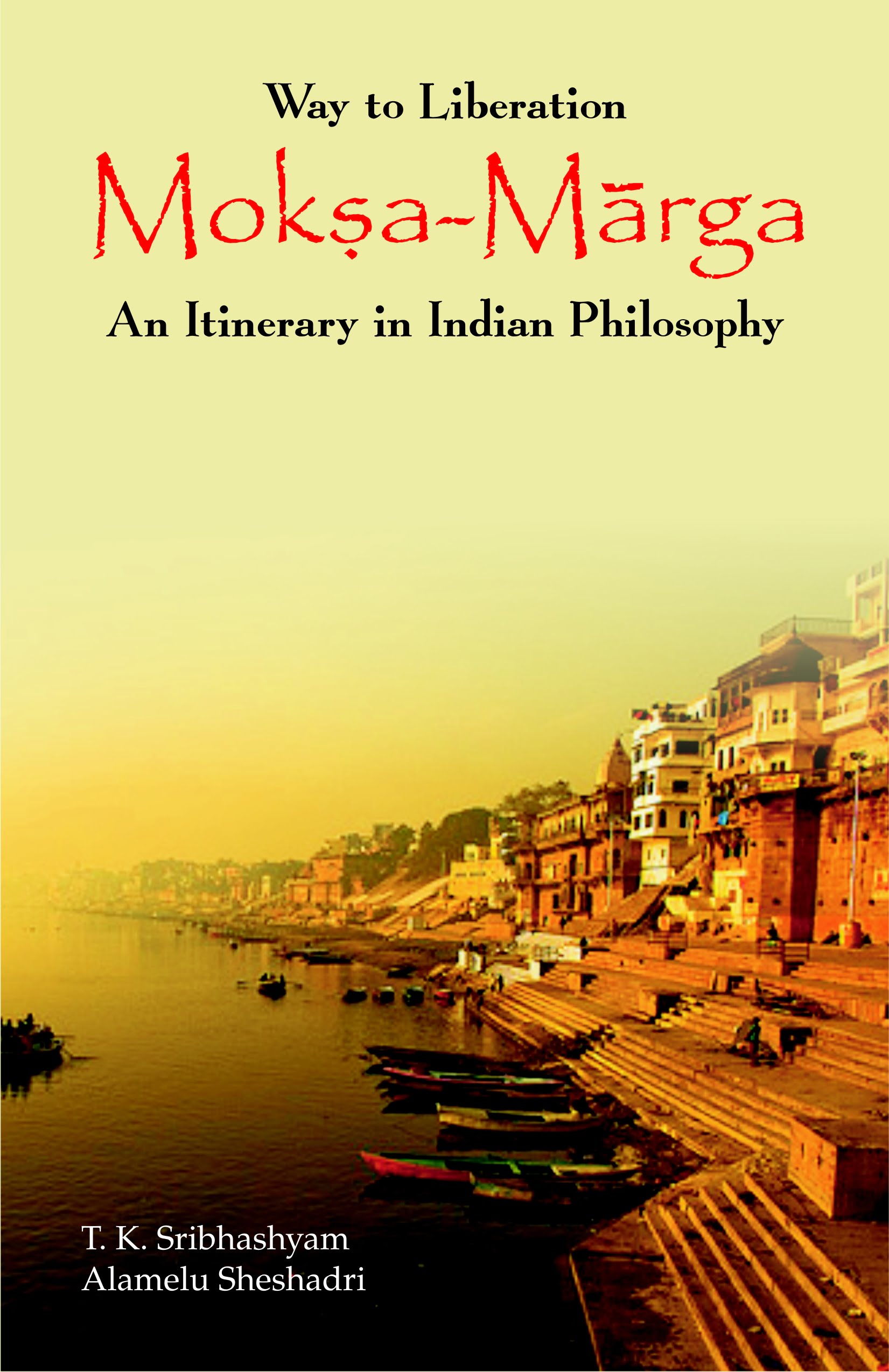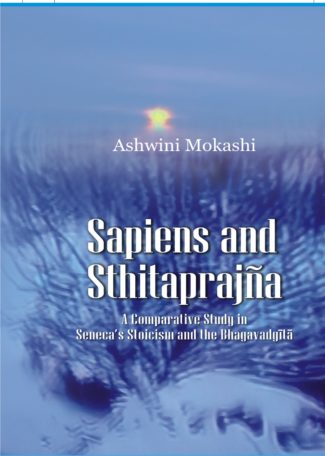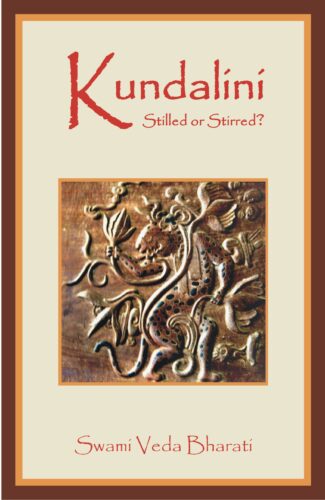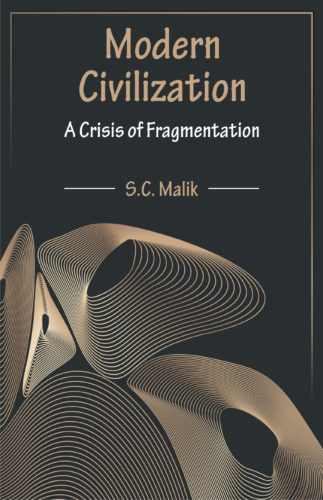-


Way to Liberation- M...
Way to Liberation- Moksha Marga
An Itinerary in Indian Philosophy by: T.K. Sribhashyam , Alamelu SheshadriThe book projects light on concept of contemplation and meditation, including meditation techniques and practices, which is central to the attainment of moksha. It also explains meaning of love, devotion, religion, the body-soul relation and the three yogas understanding of which is essential to attain moksha.
₹630.00
ISBN: 9788124605981
Year Of Publication: 2011
Edition: 1st
Pages : xxii, 300p.
Bibliographic Details : 12 b/w colour photographs and line drawings; Glossary; Bibliography; Index
Language : English
Binding : Hardcover
Publisher: D.K. Printworld Pvt. Ltd.
Size: 23 cm.
Weight: 600
The way to liberation or moksha needs perfect knowledge, perfect action and perfect surrender to the Lord. The bhakta becomes a bhagavata as he not only knows and sees but also lives as a servant of God. Moksha is the final approach to the purity and perfection of the human soul. This volume attempts an in-depth study of the concept of liberation or moksha and the way to attain it.
The book begins with the meaning of love, devotion, religion, the body-soul relation and the three yogas, an understanding of which is essential to understand the concept of moksha. In this context, it delves into the meaning of the Brahman, the Absolute, as conveyed in the Vedas and other religious works like the Upanishads and the Bhagavad-Gita, the concept of the universal spiritual entity of Sarveshvara, concepts of sin and virtue, and even the principles of monotheism and polytheism in Hinduism. Quoting from the scriptures and other relevant texts, it emphasises on the notion of devotion and its benefits to examine the means to self-realisation and liberation and includes a study of the concept of contemplation and meditation, including meditation techniques and practices, which is central to the attainment of moksha.
With interesting illustrations, the volume will be useful to religious scholars and students and seekers on the path of spiritual fulfilment.
Genealogy
Benediction by Sri B.K.S. Iyengar
Preface
Presentation
List of Tables and Figures
1. Hinduism — A Brief Perspective
2. Introduction
What is Love for Man?
What is Love that can Never be Measured?
The Impermanency of Human Love
Two Ultimate Aims in Man
Body-Soul Relation
Attachment to and Detachment from the Body
What is Devotion?
What is Religion?
The Cultivation of Devotion Without Religion
The Three Yogas
3. Concept of Liberation (Moksha)
Views on Soul and Liberation
Means to Liberation
Karma and Liberation
Liberation as the Aim of Devotion
Devotion and Libertion
Liberation: Yoga and Samkhya View
4. Brahman, the Absolute
Brahman in the Vedas
Brahman in the Upanishads
Brahman in Bhagavad-Gita
Brahman, the Unmanifest
5. The Universal Spiritual Entity, Sarveshvara
Concept of the Universal Spiritual Entity
Attributes of the Universal Spiritual Entity, God
One Without a Second — Formless — Incarnation — Omniscient — Omnipotent — Non-intrusive — Just and benevolent — Monotheism and Polytheism — Narayana — Vishnu — Krishna — Sudarshana — Shiva — Shri as Goddess — Concept of Hiranyagarbha (the Golden Egg) — Jesus as God, Guru and Saints — Conception of a religion-free God
6. Concept of Sin and Virtue
Concept of Karma
Concept of Sin
The Universal Spiritual Entity is not the Judge of Our Sin
Role of Sin and Vice
7. Peaceful Emotion, Shanta Rasa
Birth of Human Emotions
Peaceful Emotion, Shanta Rasa
Shanta Rasa and Bhakti
8. Benefits of Devotion
Introduction
Devotion Reduces the Consequences of the Activities of Other Emotions
Realisation Reduces the Consequences of Klesha and Karma
Avidya — Asmita — Raga — Dvesha — Abhinivesha
9. Devotion as a Means to Self-realisation, Atma-Gyana
Brahman and Our Consciousness
Self-realisation
10. Meditation Techniques in Hinduism
Upasana, Vidya
32 Vidyas of the Upanishads
Meditation in the Puranas
Meditation in Vaishnavism
Meditation in Shaivism
Meditation in Tantra, Tantradhyana
11. Practical Exercises in Contemplation and Meditation
Five steps to meditation
Preparatory Practices — Contemplation — Meditation — Dedication — Practice
Preparatory Practices
Contemplation
Confidence in a Spiritual Teacher — Precious Human Life — Death Consciousness — The Risk of a Downgraded Life — Karma and Its Effects — Developing Renunciation — Developing Equanimity — Recognising the Kindness of all Beings — Cherishing Others Equally — Compassion
Meditation
Peaceful Mind — Vision of the Self — Renunciation of the I-ness — Refuting the Permanence of the Body
Vision of the Ultimate
Dedication of Meditation
Glossary
Bibliography
Index


